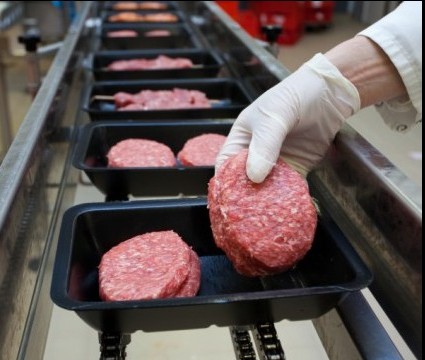Having read and listened to Agriculture Secretary Tom Vilsack’s attempts at ground beef-related damage control in the wake of the recent food safety revelations, I’m left to wonder if the USDA simply needs to get out of the food safety business entirely.
Vilsack himself — in a Minnesota NPR radio interview where he defended the USDA’s dual role as a marketing service and a food safety regulator, its recent shift towards more aggressive testing, and its ability to inspect foreign meat importers — all but admitted that the USDA has fundamentally failed in its mission. How so? The interviewer asked him one final question:
Q: Can you assure … our listeners that ground beef is safe?
A: I can assure you that we are doing everything we possibly can to make sure that that product is safe through our testing, through our inspectors … I will say also that there is still work to be done to continue to improve what we do and until we get the number of food-borne illnesses down to zero and the number of hospitalizations down to zero and the number of death down to zero, we’ll still have work to do.
Please note that he did not say “Yes, I can.”
And if you look at the proposals Vilsack highlighted in yesterday’s late evening statement, they’re mostly focused on increased vigilance, testing, and tracking systems to find the hundreds of thousands of pounds of infected beef the industrial food system produces. Given the ability of the meat industry to use its influence, access, and power within the USDA to scale back any attempts to affect core issues like livestock farming methods, slaughterhouse line speed, and processors’ procurement practices, it’s hard to deny that its role as an industry cheerleader has left it hopelessly compromised.
Which is just how the meat industry likes it. It was only a few months ago that Big Meat used its allies on the House Ag Committee to beat back an attempt to include greater FDA oversight of meat, eggs, and poultry in the food safety legislation pending before Congress. The argument at the time was that the FDA didn’t have the “expertise” to assess food safety practices regarding livestock — but it was clearly all about the industry maintaining its firm grip on its regulator of choice, the USDA. With any luck, this argument will ring a bit hollow when the Senate takes up food safety legislation (assuming it ever does — there is no Senate food safety bill at the moment).
But it’s not just the meat industry that is using the USDA to shield itself from more rigorous FDA oversight. The current food safety disaster in ground beef is on the verge of being replayed over our vegetables. Elanor Starmer at the Ethicurean has a must-read three-part report (1, 2, 3) on hearings in California on a proposal by largescale industrial growers for a so-called “National Leafy Green Marketing Agreement.” Ostensibly, the proposal is designed to cut down on the potential for E. coli contamination of leafy greens. But, in addition to documenting the proposals many flaws (including the fact that the NLGMA appears to ignore the true source of E. coli contamination of vegetables, i.e. industrial livestock farming practices), critics are asking what does a USDA Marketing Agreement — something normally used to guarantee product qualities like taste, texture, color, or shape — have anything to do with food safety?
The answer is simple and all too familiar. As one industry rep explicitly admitted, it’s all about avoiding FDA regulation over leafy greens — and to short circuit the bills before Congress that would mandate it. The FDA won’t, it seems, “put industry at the table” quite the way the USDA will.
And Starmer provides plenty of evidence of USDA cheerleading over this issue; the USDA representative leading the government’s questioning was one of the strongest backers of the NLGMA at the hearing. So much for impartiality.
The fact is, Tom Vilsack is unable to face down Big Meat — even if he wanted do, he’s surrounded by an institution built to protect it. In effect, Big Ag was left in charge of food safety — and it’s been an unmitigated disaster. Who in Washington has the will or the power to change that?
Anyone? Anyone?


